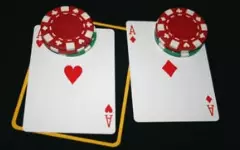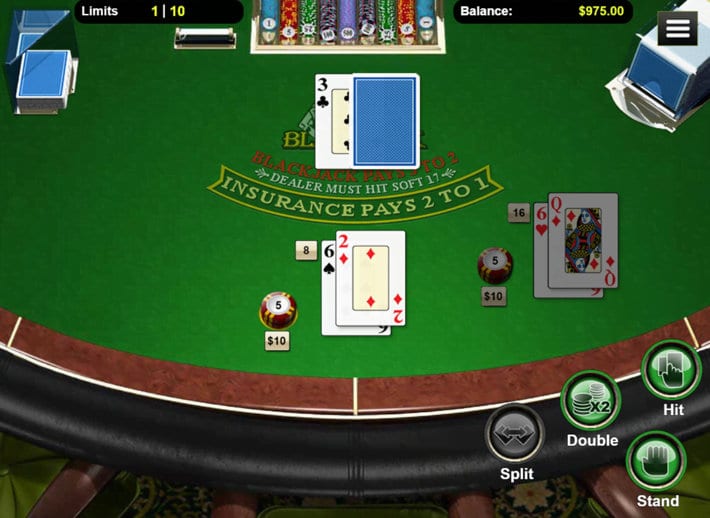In Blackjack Should You Split Tens
Splitting is an interesting component of playing Blackjack that allows you to enter two hands in the same round if the first two cards in your initial hand are of the same value. So what is splitting, when can you do it and when should you? Read on to find out.
In Blackjack Should You Split Tension
What is splitting in Blackjack?
A player can split in a round of Blackjack if their opening two cards are of the same value. This means any pair from Ace through to nine and any two cards valued at ten (for instance, a ten and a Queen).
In Blackjack Should You Split Tens Units
Never split tens. This is a common rookie mistake in Blackjack. Splitting 10s essentially sacrifices a great hand for a very slim chance at an even better one. Do you split tens if? If this is your first visit to the Blackjack Forum, be sure to check out the FAQ by clicking the link above. You will have to r e g i s t e r (free) before you can post: click the r e g i s t e r link to proceed. Let’s say you have a 100K bankroll and you want to spread 1-10 units in the high limit room with $100 min bet. It seems like you can increase EV by instead going to the $25 min table and spreading 1-40. However, this would hurt longevity since the backoff would come faster. When you and your opponent lose single bets you win, but if you both win your bets, you lose. You should split all pairs in that situation when your opponent has 18 and dealer shows 4. Not sure where to go from there. I'm assuming you would play it regular and stand on the stiffs if thats what you turned them into.
If a player decides to split, they must place a second bet for that round of the same value as their original bet, essentially doubling their stake. The two cards are then treated as the first card of two new independent hands that are played out separately. Should one of these hands become a pair, the player is allowed to split again and enter a third hand whilst tripling their stake, and so on.
Generally, you are allowed to hit or double down on a split hand, with the exception of if you have split two Aces, in which case the two hands are often not allowed to consist of more than two cards. In some cases, a Blackjack achieved on a split hand will not count as such, and simply be valued at 21.
In a game of Blackjack, opportunities to split will likely be rare. You have an approximate 0.5% chance of getting any pair from Aces to nines in your opening two cards, and a 9.4% probability of getting two cards valued at ten.

When to split in Blackjack
It is arguably universally agreed that there are two scenarios in which you should always split: if you have a pair of Aces or a pair of eights.

You must carefully consider if you are going to split in Blackjack.
While you are likely to be prohibited to getting only one more card on two split Aces, this nonetheless presents two separate opportunities to get Blackjack. There will be an approximate 30.4% chance of a hand starting on an Ace getting Blackjack, equating to a 51.6% probability that at least one of your two hands will do so.
Meanwhile, a pair of eights presents a value of 16. This is widely considered to be the weakest opening hand in Blackjack, by virtue of the fact it is one beneath the minimum value of 17 that the dealer is required to finish on (meaning it is always likely to lose) but has a significant risk of going bust when hitting. Splitting a pair of eights averts this problem.
For a pair of nines, you should split in all circumstances unless the dealer’s face up card is a seven, worth ten or an Ace, in which case you should stand. If the dealer’s face up card is a seven, the most likely outcome is that their second card will be worth ten, meaning they will be forced to finish the round with a hand worth 17, less than your hand’s value of 18.

If the face up card is worth ten or an Ace then they have a chance to get Blackjack, meaning standing on a value of 18 is the option that presents the best chance of winning.
With the exception of pairs of fives, for pairs between two and seven you should look to split when the dealer’s face up card is certain values between two and seven and they are at the greatest risk of going bust. The information discussed in the last few paragraphs is summarised in the table below:

Blackjack splitting strategy
NB: This table assumes four to eight decks in play and that the dealer hits on a soft 17.
When not to split in Blackjack
Under no circumstances should you split on a pair of tens. An opening hand worth 20 is very strong and can only be beat by a Blackjack or a three-card hand worth 21, and the dealer has just an approximate 12.2% chance of getting this in any given round. When splitting a pair of tens, you are likely to end up with two separate hands both worth less than 20, essentially spurning a strong opportunity to win the round by putting yourself at risk of doubling your losses.
You should also never split on a pair of fives. In this situation, the best approach is to double down, as this will provide an approximate 53.8% chance of finishing your turn with a strong hand containing a value of 18 or higher. The exception here is if the dealer’s face up card is worth ten or an Ace and they therefore have a chance to get Blackjack, at which point you should hit.
For pairs of twos, threes and sevens you should not split if the dealer’s face up card is at least an eight, and for pairs of fours and sixes you should not split if the dealer’s face up card is at least a seven. For pairs of fours, you should also never split if the dealer’s face up card is beneath five, at which point they have a plausible opportunity to build a high value hand via three cards.
Enhance your Blackjack strategy
If you’re looking for general advice on how to play Blackjack, read our guide to Blackjack. If you want to learn more on how to inform your Blackjack strategy, remember to read our articles on how to double down and surrender, alongside how to place a side bet and insurance bet.
We also have an article outlining an advanced Blackjack strategy. If you want to learn more about Blackjack beyond how to play the game, you can read about the history of Blackjack.
Play Blackjack on Pinnacle Casino

Pinnacle has a wide range of Blackjack games for you to enjoy, including Live Blackjack, Classic Blackjack, Vegas Strip Blackjack and many more!
US Players and Credit Card, BitCoin Deposits Accepted!
How to Play a Pair of 10's in Blackjack
Soft hands:Soft 13 - 14 - Soft 15 - 16 - Soft 17 - Soft 18 - Soft 19 to 21
Splitting pairs:Aces - 2's - 3's - 4's - 5's - 6's - 7's - 8's - 9's - 10's
Should You Split Ten's?
A pair of tens is a hand you should stand on.
Reasoning
A total of 20 can only be beat by a dealer 21. And even if you make this huge longshot, the best you can do is a push. But since this is the only situation where you might even consider hitting or doubling, it's too rate and too much of a longshot to actually do.
But with a total of 20, you're going to have a good chance of winning anyway.
US Players and Credit Card, BitCoin Deposits Accepted!